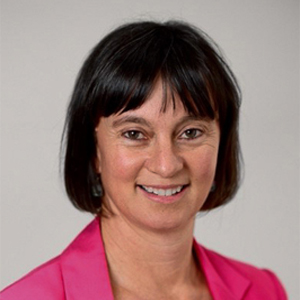Queensland has now passed the Child Safe Organisations Act 2024, which establishes two new schemes aimed at keeping children and young people safe within organisations: a Child Safe Standards Scheme and a Reportable Conduct Scheme. Schools have a little more than a year to get ready for mandatory compliance with the new Queensland Child Safe Standards, and a little more than two years to get ready for compliance with the Reportable Conduct Scheme. Both schemes will require significant cultural change over those timeframes.
The Child Safe Organisations Act 2024 (Qld)
On 11 September 2024, as one its final acts before recessing for the state election, Queensland’s parliament passed the Child Safe Organisations Act 2024 (Qld) (CSO Act). The CSO Act fulfils Queensland’s agreement to recommendations of the Royal Commission into Institutional Responses to Child Sexual Abuse to implement:
- nationally consistent child safe organisation standards with which child-related organisations must comply; and
- a Reportable Conduct Scheme to ensure that organisations properly investigate allegations of harm to children and young people by employees, volunteers and contractors.
The CSO Act is the result of an extensive consultation process that occurred over several years and involved numerous stakeholders. Ideagen CompliSpace contributed to that process, making a written submission on the Growing Child Safe Organisations Consultation Regulatory Impact Statement in September 2023.
Various aspects of the CSO Act commence on 1 October 2025, with later, staggered commencement dates for each of the two schemes and for the different kinds of organisations that must comply with them. However, these reforms are so significant that schools need to understand now what will be required of them, so that they are ready to demonstrate compliance on and from the relevant commencement dates.
The Child Safe Standards Scheme
Chapter 2 of the CSO Act sets out 10 Child Safe Standards and a universal principle with which “child safe entities” must comply (Schedule 1 lists who is a “child safe entity”: non-government and government schools are included in that list). It also gives the Queensland Family and Child Commission (QFCC) responsibility for overseeing and enforcing the scheme.
The 10 Child Safe Standards align directly with the National Principles for Child Safe Organisations and are:
- child safety and wellbeing is embedded in the entity’s organisational leadership, governance and culture
- children are informed about their rights, participate in decisions affecting them and are taken seriously
- families and communities are informed and involved in promoting child safety and wellbeing
- equity is upheld and diverse needs respected in policy and practice
- people working with children are suitable and supported to reflect child safety and wellbeing values in practice
- processes to respond to complaints and concerns are child-focused
- staff and volunteers of the entity are equipped with the knowledge, skills and awareness to keep children safe through ongoing education and training
- physical and online environments promote safety and wellbeing and minimise the opportunity for children to be harmed
- implementation of the child safe standards is regularly reviewed and improved
- policies and procedures document how the entity is safe for children.
The universal principle is that a child safe entity must provide an environment that promotes and upholds the cultural safety of Aboriginal and Torres Strait Islander children. This principle must be implemented across all of the 10 Child Safe Standards.
These provisions of the CSO Act will commence on 1 October 2025 (at which time the current requirements to comply with the Working with Children (Risk Management and Screening) Act’s child and youth risk management strategy requirements will cease), and the requirement for schools to comply with them will commence on 1 January 2026. This means that schools now have just over a year to develop and implement policies, procedures and practices that can demonstrate their compliance on and from the commencement date.
The Reportable Conduct Scheme
Chapter 3 of the CSO Act establishes a Reportable Conduct Scheme in Queensland. It gives the QFCC responsibility for overseeing and enforcing the scheme. Similar schemes have been in place in NSW, Victoria and the ACT for years and were most recently introduced in Western Australia and Tasmania.
Queensland’s Reportable Conduct Scheme will require:
- “workers” to notify the “head” of a “reporting entity” if they become aware of a “reportable allegation” about or a “reportable conviction” of another worker (or themselves) (or, if the matter relates to the head of the reporting entity, they must instead report this directly to the QFCC)
- the head of the reporting entity to give the QFCC:
- an initial report about the allegation or conviction within three business days of becoming aware of it
- an interim report about the interim actions taken in response (or a final report described below) within 30 days (or such other time as advised by the QFCC); and
- unless a sector regulator is investigating the matter, a final report, after completing an investigation into the matter, about findings made and actions taken in response, within 30 days (or such other time as advised by the QFCC)
The head of a reporting entity must also ensure that the entity has systems in place to prevent reportable conduct by workers, to enable workers to report reportable allegations and convictions and to investigate and respond to reportable allegations and convictions.
Schedule 2 lists who is a “reporting entity”. Non-government and government schools are included in that list, as are religious bodies that provide activities, facilities, programs or services in which adults interact with children (such as religious bodies that own, govern or manage schools).
The “head” of a reporting entity is, relevant to schools:
- the chief executive officer of the entity, however described (for example, the CEO of a body corporate that owns or operates a group of schools)
- if there is no chief executive officer, the principal officer of the entity, however described (for example, the principal of an independent school); or
- if there is no chief executive officer or principal officer—a person or holder of a position for the entity approved by the commission (for example, the religious leader of a diocese who is directly responsible for governing schools within the diocese).
“Workers” includes all employed staff members, volunteers and contractors - it does not matter whether they work with children or need a Blue Card.
Reportable conduct, reportable allegations and reportable convictions are all defined in the CSO Act. In essence, these terms include conduct by, or convictions relating to conduct by, a worker that causes harm to a child. The conduct does not have to have occurred in the course of the worker’s work for the reporting entity, and the child does not have to be engaged in activities with the reporting entity (for example, for schools, the child does not have to be a student at the school).
The Reportable Conduct Scheme provisions of the CSO Act will commence on 1 July 2026, and the requirement for schools to comply with them will commence on 1 January 2027. This, together with the obligation on the “head” of a school to ensure that relevant systems are in place, means that the “heads” of schools in Queensland now have about two years to develop policies, procedures and practices that will implement the scheme on and from the commencement date.
What Should Schools Do?
As explained above, schools have a little over a year to be ready to demonstrate compliance with the Child Safe Standards and a little over two years to be ready to implement the Reportable Conduct Scheme. While these commencement dates might seem far away, schools will have significant work to do over that time.
Child Safe Organisations Scheme
Schools currently have to comply with child and youth risk management strategy (CYRMS) requirements. While most of these overlap with the new Child Safe Standards, the Child Safe Standards include additional and different requirements, such as requirements about the participation and empowerment of children, their families and their communities; cultural safety; diversity; and equity. Over the next year, schools should:
- keep an eye out for guidance from the QFCC about what compliance with each of the Child Safe Standards and the universal principle looks like
- keep an eye out for guidance from the Non-State Schools Accreditation Board specifically about what it might expect to see from schools to demonstrate compliance
- conduct a gap analysis between your CYRMS policies, procedures and practices and what is required to comply with the Child Safe Standards
- develop an implementation plan and set up an implementation committee to oversee it and drive any required changes to policies, procedures and practices.
Reportable Conduct Scheme
While commencement of the Reportable Conduct Scheme is further away for schools, it is still important to start the work required to implement it now. Over the next couple of years, schools should:
- start to talk to staff, volunteers and contractors about the scheme and how reporting requirements under it will be different from – and additional to – mandatory reporting to Child Safety Services and reporting to police
- keep an eye out for fact sheets about the scheme from the QFCC, such as information about identifying reportable conduct, conducting investigations and the QFCC’s oversight powers.



